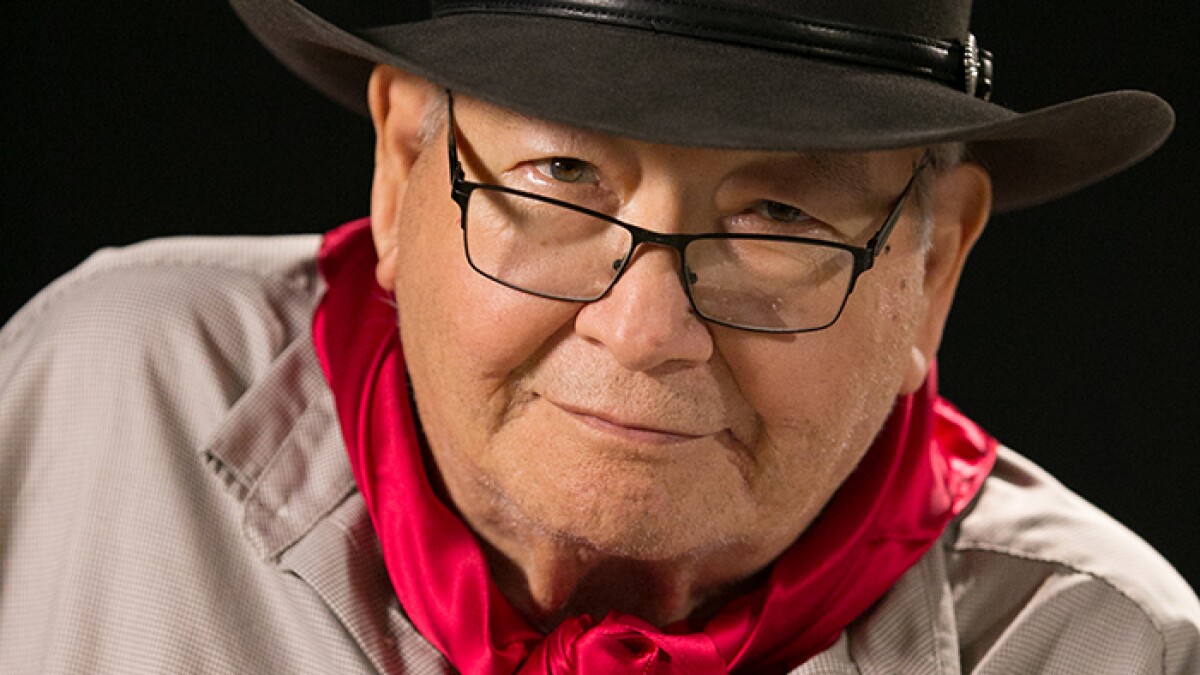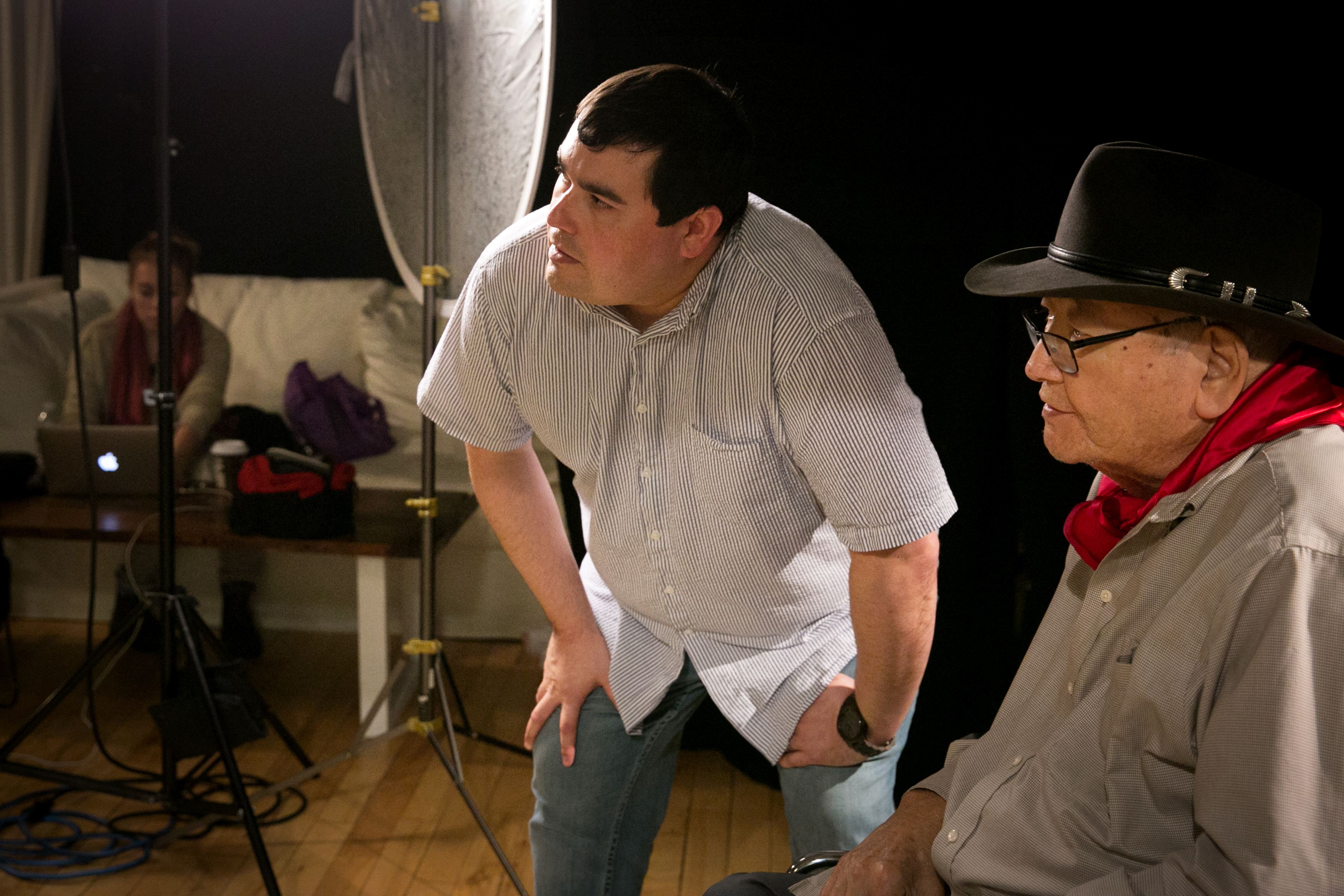
- Details
- By Levi Rickert
N. Scott Momaday (Kiowa/Cherokee), one of the most prolific contemporary Native American writers, has passed away at his home in Santa Fe, New Mexico. Momaday, who was awarded a Pulitzer Prize for Fiction in 1969 for his debut novel “House Made of Dawn,” was a storyteller, poet, and educator. He was 89.
Momaday is credited with a resurgence of Native American literature and earned his place as the founding member of the “Native American Renaissance.” After receiving the Pulitzer Prize, he wrote “The Way to Rainy Mountain” in 1976.
Throughout his illustrious career, he became known for Indigenous oral tradition, which he taught during his 35 years as an educator. Momaday earned a Ph.D. in English literature from Stanford University and went on to teach at several universities, including the University of California-Santa Barbara and the University of California-Berkeley. He retired as Regents Professor at the University of Arizona.
In 2007, Momaday was presented a National Medal of Arts award by President George W. Bush. At the time of the award presentation, the White House said Momaday was given the award for “for his writings and his work that celebrate and preserve Native American art and oral tradition.”
In 2019, Momaday was featured on a PBS “American Masters” documentary, “Words from a Bear,” in which he discussed his belief he was a reincarnation of a bear connected to the Native American origin story around Devils Tower in Wyoming. The film captured the essence of Momaday’s writing with a strong emphasis on Native American oral history. "Words From a Bear" was produced and directed by Jeffrey Palmer (Kiowa).

Palmer, who teaches film at Cornell University, told Naive News Online on Monday that he worked with Momaday for three and half years to complete the documentary, which allowed him to spend a lot of time with the author.
"He made Native American literature and storytelling palatable to the rest of the world. He opened countless doors of Native American storytellers," Palmer said. "He was a changemaker and an icon. For the Kiowa people it was profound to see our stories told to the rest of the world. I put Momaday up there with Whitman and Faulkner. He was a great American writer, not only a Native American writer."
Born on February 27, 1934, in Lawton, Oklahoma, at the Kiowa and Comanche Indian Hospital, Momaday’s father was full-blooded Kiowa, and his mother was Cherokee, English, Irish, and French. He spent several years growing up at the Jemez Pueblo in New Mexico, which influenced much of his writing.
In addition to the Pulitzer Prize, Momaday was the recipient of numerous awards and honors, including the Academy of American Poets Prize; the National Medal of Arts; the Ken Burns American Heritage Prize; the Dayton Literary Peace Prize Foundation’s Richard C. Holbrooke Distinguished Achievement Award; and the 2021 Frost Medal for distinguished lifetime achievement in poetry.
More Stories Like This
Native News Weekly (August 25, 2024): D.C. BriefsColusa Indian Energy Participates in Port of Quincy Town Hall on Columbia Basin Power Project
Q&A: Jingle Dress Dancer Answered Call to Ceremony in Face of ICE Violence
Haaland Gets First Hand Look at Efforts to Address Homelessness in Albuquerque
Navajo Nation Secures $285 Million in Federal Broadband Funding to Connect Thousands of Homes
Help us defend tribal sovereignty.
At Native News Online, our mission is rooted in telling the stories that strengthen sovereignty and uplift Indigenous voices — not just at year’s end, but every single day.
Because of your generosity last year, we were able to keep our reporters on the ground in tribal communities, at national gatherings and in the halls of Congress — covering the issues that matter most to Indian Country: sovereignty, culture, education, health and economic opportunity.
That support sustained us through a tough year in 2025. Now, as we look to the year ahead, we need your help right now to ensure warrior journalism remains strong — reporting that defends tribal sovereignty, amplifies Native truth, and holds power accountable.
 The stakes couldn't be higher. Your support keeps Native voices heard, Native stories told and Native sovereignty defended.
The stakes couldn't be higher. Your support keeps Native voices heard, Native stories told and Native sovereignty defended.
Stand with Warrior Journalism today.
Levi Rickert (Potawatomi), Editor & Publisher

